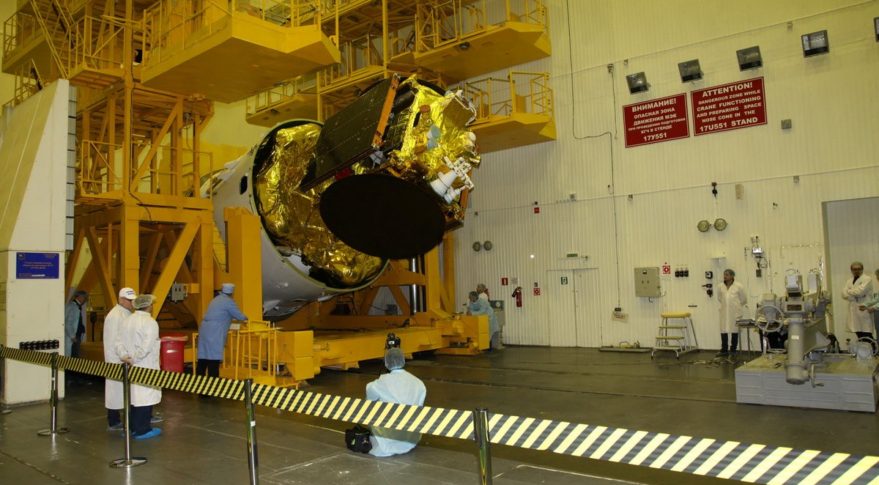Angosat-1 Communications Restored After Post-launch Glitch

GLASSBORO, New Jersey — Angola's new satellite is communicating normally with ground teams again after losing contact shortly following launch.
Moscow-based Energia, manufacturer of Angosat-1, as well as the Russian state corporation Roscosmos confirmed in press releases Dec. 29 that the satellite is sending telemetry and that onboard systems are in good health.
Angosat-1 launched Dec. 26 on a Zenit-3SLBF rocket from the Baikonur Cosmodrome in Kazakhstan. Energia reported the following day that Angosat-1 had stopped sending vital data to ground teams. Angosat-1 is the first satellite for Angola, designed for television broadcast and communications services in C- and Ku-band, and took eight years to complete.
The Angolan National Office for Space Affairs, or GGPEN (Gabinete de Gestão do Programa Espacial Nacional), said Dec. 29 in a Portuguese-language website update that the satellite regained contact at 9:00 a.m. Eastern (3:00 p.m. local time in Angola) on Dec. 28, one day after the glitch.
The lapse in telemetry data with Angosat-1 was the second high-profile space sector mishap for Russia in two months, following a November Soyuz failure that claimed the Meteor-M No.2-1 weather satellite and 18 secondary payloads.
While Russian rockets regularly provide launch services for international customers, the 1,647-kilogram Angosat-1 satellite represents a rare export for the country's satellite manufacturing industry. Angosat-1 has a design life of 15 years, providing coverage over all of Africa and parts of Europe.
This story was provided by SpaceNews, dedicated to covering all aspects of the space industry.
Breaking space news, the latest updates on rocket launches, skywatching events and more!
Caleb Henry is a senior analyst for Quilty Analytics and a former staff writer for the space industry publication SpaceNews. From 2016 to 2020, Caleb covered the global satellite industry for SpaceNews, chronicling everything from launches, spacecraft manufacturing and ground infrastructure. Caleb's work has also appeared in NewSpace Global and Access Intelligence. He earned a bachelor's degree in political science with a minor in astronomy from Grove City College.

